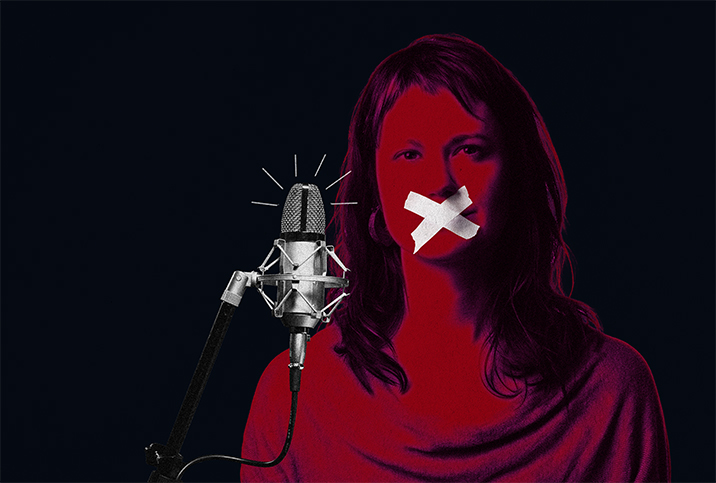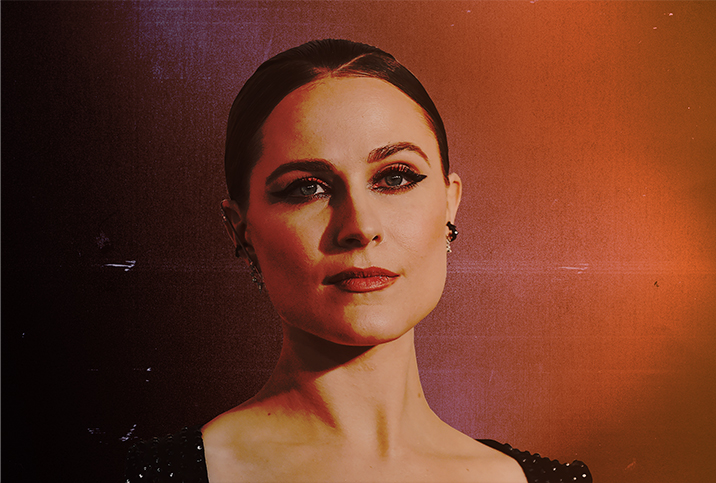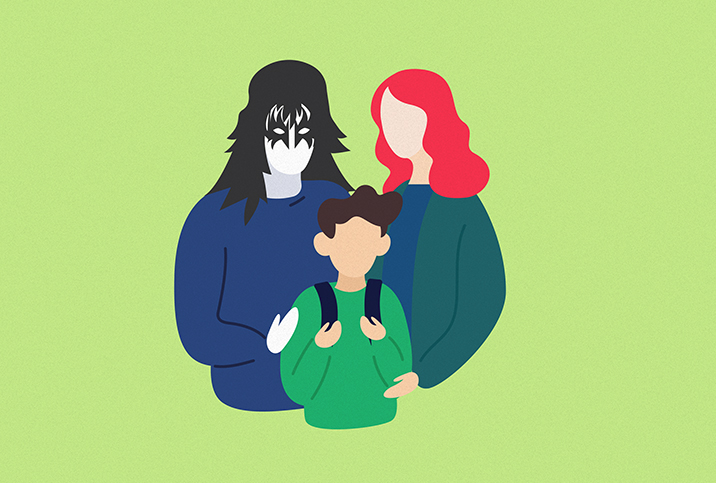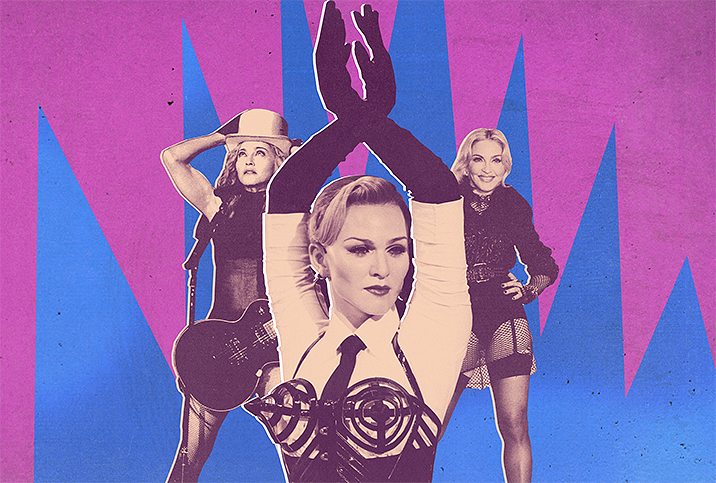How Women in Music Are Overcoming Gendered Obstacles

People who identify as women, and the bodies they live in, have long been at the center of attention for the music and entertainment industry. But, few people probably realize what it's actually like being a woman working in the music industry without the trappings and occasionally tragic outcomes heavily publicized on TV and in tabloids.
The reality is that art does imitate life, including its most unsavory parts.
Meschiya Lake, New Orleans
At the peak of her pre-pandemic touring schedule, Meschiya Lake estimated she was playing about 250 gigs a year or more, which amounts to a lot of time on the road as well as on stages in her home city of New Orleans. Cutting your teeth and finding success in one of the country's richest music cities is difficult in and of itself, but completing international and domestic tours adds more than a few feathers to a professional musician's cap.
However, a culture of celebrity worship often distorts the public's perspective when it comes to being a working artist. This culture can exacerbate and contribute to harmful and toxic attitudes related to gender, dating, sexuality and personal worth.
"A woman has to work twice as hard and be twice as skilled as a man, on average, to be taken seriously—and even then, you might not be," Lake explained.
The expectations and attitudes directed at women, just like stage lights, can be hot enough to make anyone sweat. Women are often subject to increased scrutiny and criticism for all the wrong reasons. And then, there's age.
'A woman has to work twice as hard and be twice as skilled as a man, on average, to be taken seriously—and even then, you might not be.'
"In our culture, youth is valued in such a way that being an older musician, you think that you can't do it or it's looked down upon," Lake said. "You have this expiration date, just like if you're a female. Your attractiveness is going to expire and so is your worth to the music industry. There is something to be said for that. But, music is vast. People are vast. Different likes are vast. So, you can have a career that spans your entire life and be an entertainer or be a musician."
Lake referenced having tolerated mistreatment for the sake of perceived upward mobility in the industry when she was younger. Ultimately, for her, fostering healthy and mutually respectful relationships with colleagues yielded much better long-term results than sacrificing her principles for the sake of a few networking prospects. The real opportunity, she said, comes from solid partnerships and with putting in the work to develop an artist's craft.
"In my band, it's all-male musicians and then me. And I do get treated with respect there," Lake said. However, she knows her experience isn't the same for other musicians, who still face the barriers posed by sexism. "I'm not saying it's like that everywhere, but it is a hurdle that female musicians have to conquer.
"I have an incredible support network of friends," she noted. "You have to work at successful relationships. Maybe at the beginning of our relationship, even some of those same men did have some of those [gender-based] assumptions about me, too. But, when you're willing to have an open mind and work with somebody and respect them as a human being, you can get past that and have sustained relationships."
Genie Santiago, Boston
"Just because I look like a woman, I don't want to be forced to fit into someone's idea of what a woman is supposed to be," said Genie Santiago, a Boston-based artist and co-owner of the organization Creatives of Color BOSTON.
There is growing awareness of gender's capacity to exist along a spectrum, but most people still default to thinking of gender as a binary framework. While Santiago made it clear the concept of femininity resonates with her, personally, she also treats her gender and sexuality as subject to change. Because of this, she doesn't feel like a "representative" for any singular group. Identity, Santiago said, is a journey unique to each individual.
"When we're trying to change the narrative, this is what we do, right?" Santiago asked. "We try to find the spaces that feel the safest for us. And, maybe we don't stay there for a long time, but the goal is that eventually, none of that s**t is going to matter."
Gender does seem to matter when it comes to the music industry, however. And for some artists, the prevalence of familiar gender dynamics in the studio can prove a dismaying experience in the best of circumstances, and an outright traumatic experience in the worst.
"I do feel like it's a predominantly straight-male-dominated space, within the music industry," Santiago said. "Because I'm also a sexual abuse and assault survivor, I am always really cautious about being in a space with straight men. When I would go to the studio in the beginning, I would always bring someone with me that I felt could keep me safe."
'A lot of times I've had these men, [with whom] I thought it was going to be a professional relationship—and it was not.'
Music studios can sometimes suffer from an overly casual quality. In theory, the artist paying to use the space should have fairly exclusive oversight of who is allowed to be privy to the recording session and the business conducted surrounding those appointments. Some producers and engineers aspire to a higher level of professionalism than others when it comes to guests in the studio, but when artists are first starting out, they are likely to be in a position where they feel grateful for the opportunity to record in any capacity, and as such, they may not feel comfortable bringing up issues involving additional people present or creative direction between the artist and the engineer.
Sometimes, when gender and sexuality become factors in these exchanges, artistic and business affairs suffer.
Santiago experienced a learning curve around this in her own right. When friends and colleagues of previous engineers and producers would come in and out of her early recording sessions uninvited, it created an uncomfortable atmosphere and impeded her experience of the sessions.
"I never felt safe speaking up and saying, 'There shouldn't be anyone else in here, this doesn't make me feel safe. This is a creative, sacred space for me.'"
She said it took time to learn how to feel comfortable expressing these and similar thoughts and feelings, but certain pressures didn't help.
"These straight men look at me as a woman," Santiago explained. "A lot of times I've had these men, [with whom] I thought it was going to be a professional relationship—and it was not. They were making promises of one thing, but then it's really just to try and have sex with me."
For artists who pour their finances, free time and individual spirit into the creative process, while simultaneously overcoming past traumas and abusive experiences, this can be incredibly disheartening. At its best, creativity can be a source of catharsis and healing. To have that subverted into a damaging experience is incredibly unfortunate for young artists.
Fortunately, many musicians like Santiago learn to define their own parameters for creating success. She said she has been fortunate to not suffer any extreme violations in the studio, but she made it clear that assault and harassment are common problems for many people in creative spaces. After years of dealing with what she described as "scummy men" in the industry, Santiago said she recently found a studio she felt comfortable in, along with her own voice for self-advocacy.
She felt empowered in making boundaries clear and that the studio personnel be respectful of her expectations.
"I was in power," she said. "Like, this is my career, and you can't do anything without me. This isn't you doing something for me, I'm paying you to do this. I started to meet people who were like-minded—other artists, like myself."
She said she went into her current studio partnership in 2019 at The Bridge Sound and Stage in Boston, Massachusetts, knowing the studio primarily employed straight white men, which created some uneasiness beforehand. But Santiago was encouraged by confident recommendations from trusted colleagues and friends. It also helped that years of experience had provided Santiago with the confidence and communicative capacity to lay out the terms she was prepared to work within to her new partnerships with distinct clarity.
"When I did my first session with Mertz, I was like, 'Listen, full disclosure, this is my space that I'm going into. I need it to be this type of atmosphere: I need it to be a safe space for me, I don't want anybody coming into the sessions that I did not personally invite in there."
Santiago explained she felt empowered in making boundaries clear and that the studio personnel be respectful of her expectations.
"We communicate really well together," she said. "He never, never, never makes me [feel] unsafe."
The lessons Santiago has taken as she has learned to collaborate creatively bear an impression upon human relationship reflections, as well.
"We don't have to project our ideals on anyone else, just give people the space to be themselves and try to understand each other a little bit better," she said. "Ask people what they need. What do you need from me to make you feel safe in this space?"
Lessons learned from the booth
When musicians do their jobs well, the audience feels the artist's soul. It's a challenge in any circumstance, but when you factor in the nuanced complications between varying gender and sexual identities, the task of laying down a hot track or really lighting up an audience seems nearly miraculous.
It's easy to give up and roll over when asked to challenge one's internalized gender or sexuality bias. Sure, it's hard work to do so, but if musicians and the professionals around them can do so, while also creating art the rest of us can relate to, perhaps they have a lot more than fun tunes to teach us.


















